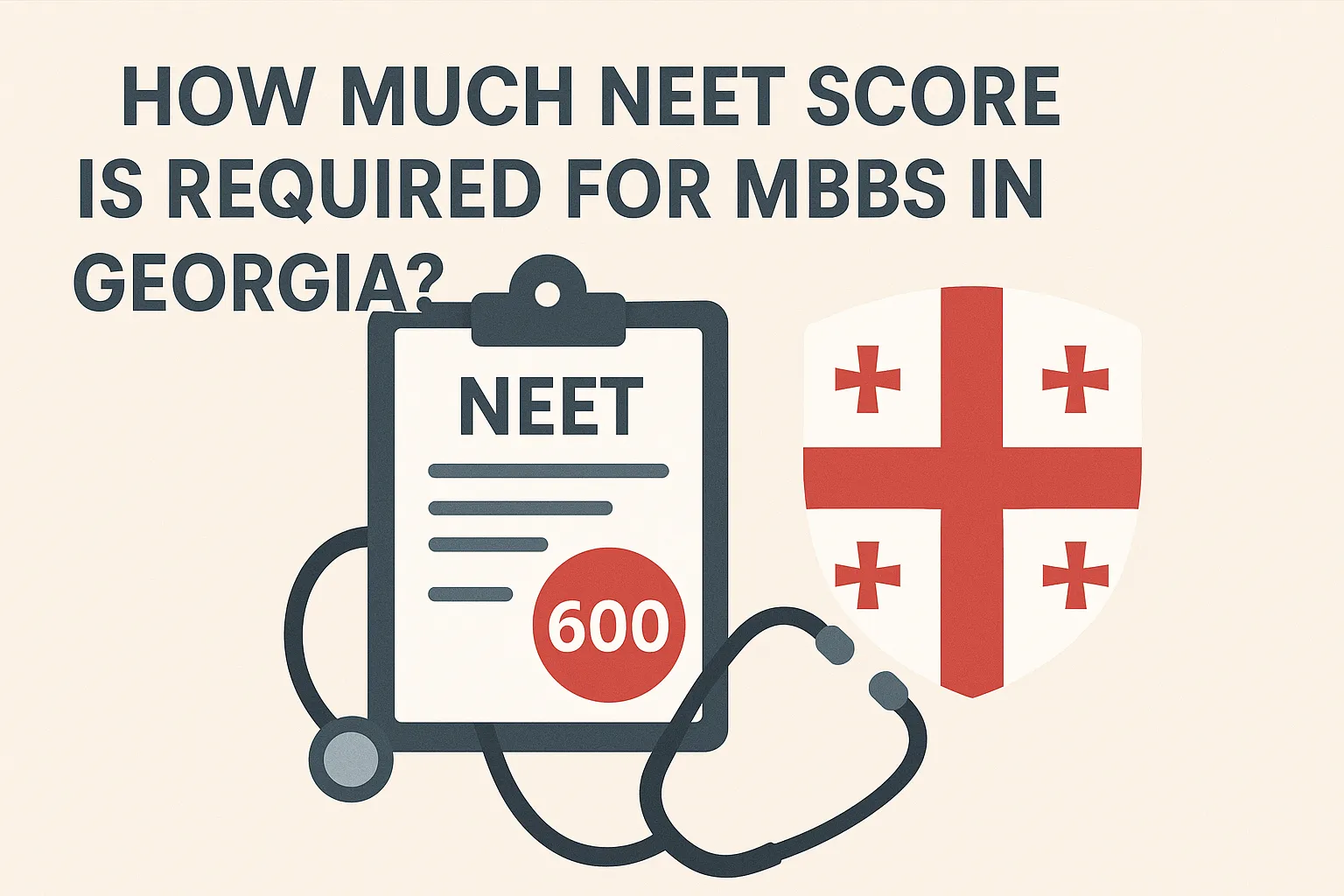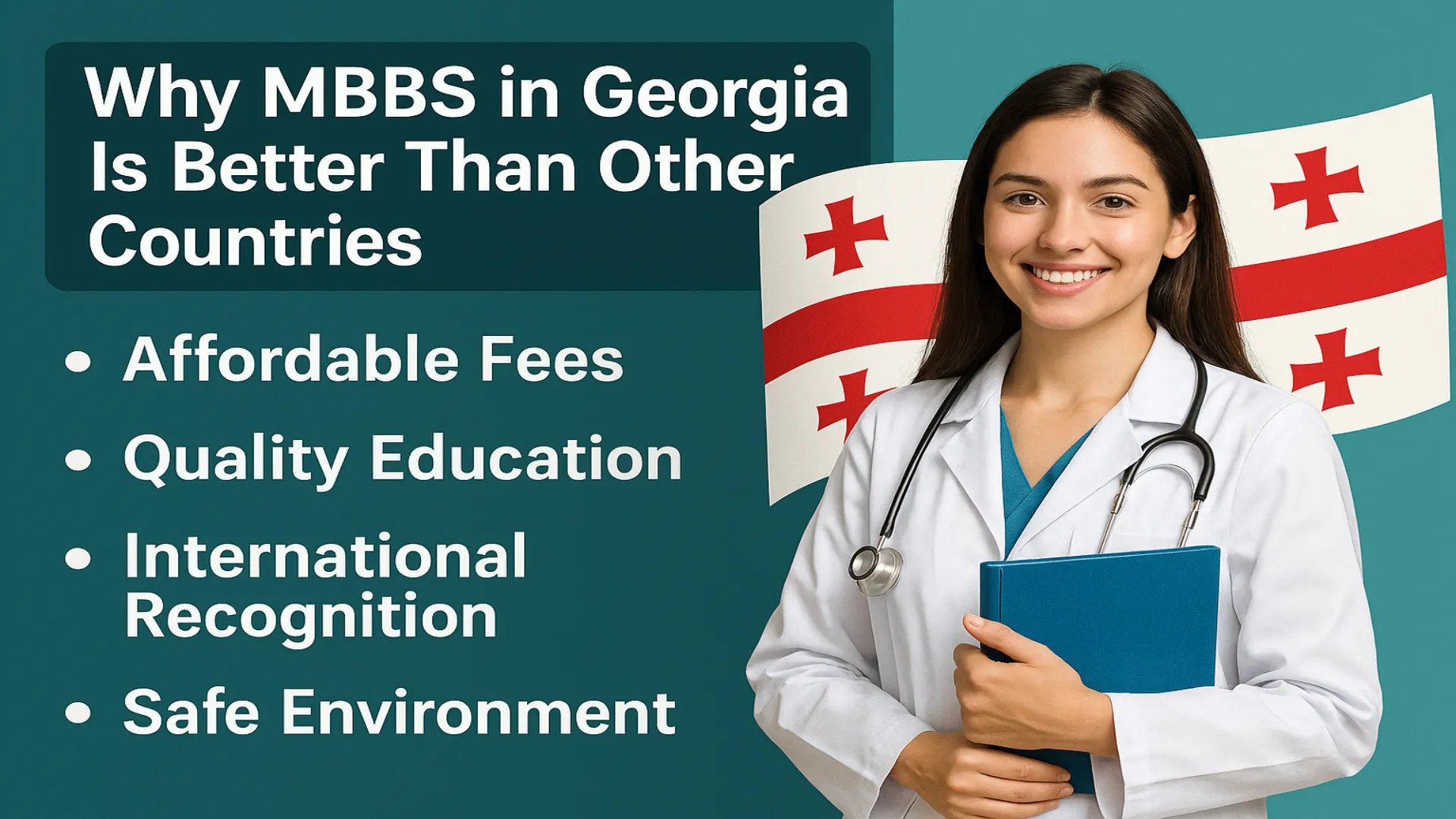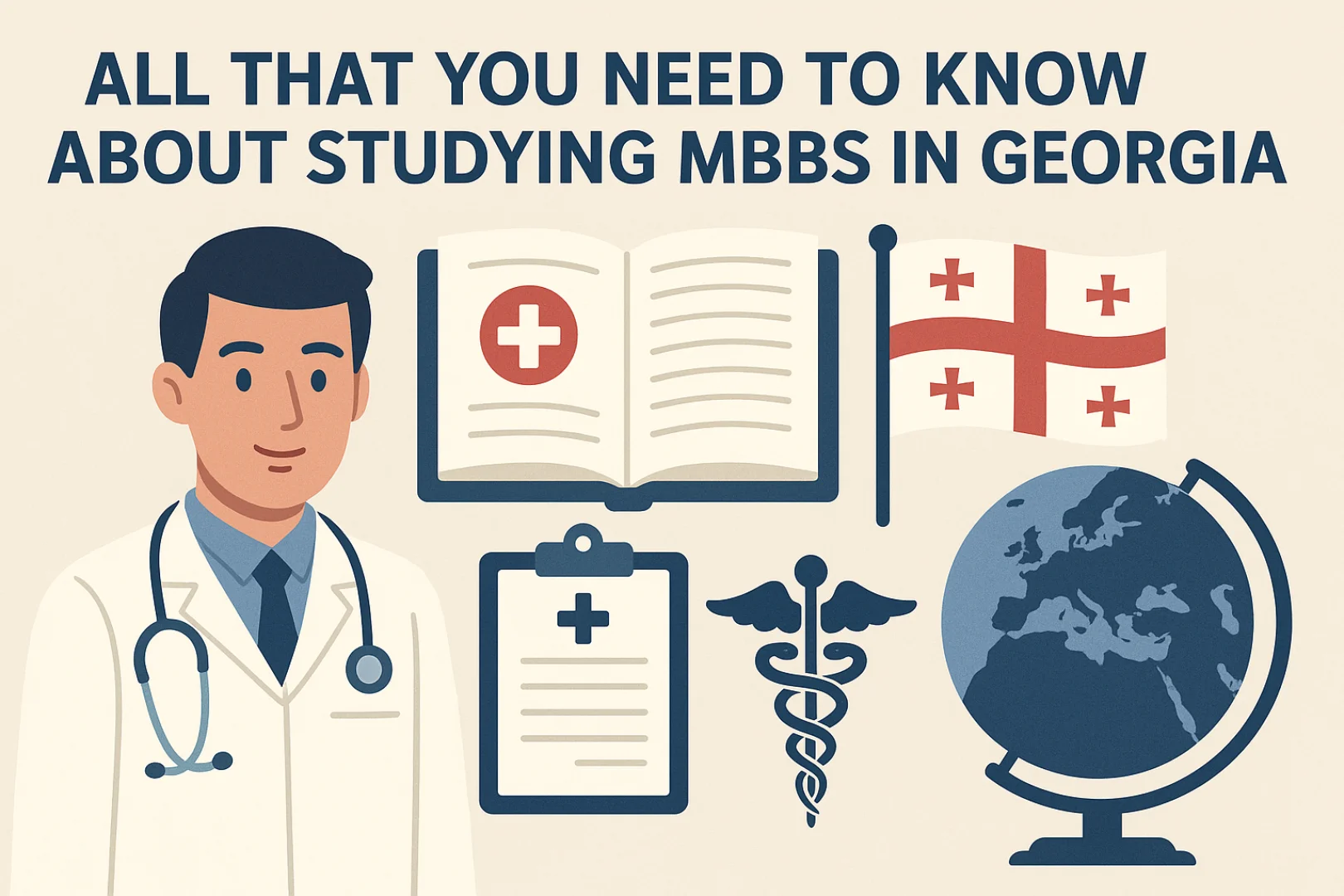
Exploring Grigol Robakidze University Tbilisi for MBBS Abroad
Studying medicine abroad is a dream for many aspiring doctors and Grigol Robakidze University (GRU) in Tbilisi, Georgia, stands out as an excellent destination. With internationally recognised programs, experienced faculty, English-taught curriculum and an affordable cost of living, GRU offers a promising path to an MBBS degree. In this post, we’ll explore why GRU might be the perfect choice for your medical education journey.
1. Why Should You Study MBBS Abroad?
Better Career Chances
Doing your MBBS from a well-known university like GRUNI can really boost your career. Since the program follows international standards, you’ll be ready to work in your own country or even abroad.
New Cultures and Experiences
Studying in Tbilisi means you’ll get to experience Georgian culture and see how different healthcare systems work. It’s a great way to grow both as a student and a future doctor.
Budget-Friendly Option
Studying in Georgia is way cheaper than in places like the US or the UK. GRU gives you top-quality education without the huge price tag, which makes it a great choice for students looking for value.
2. About Grigol Robakidze University
What’s GRUNI All About?
Grigol Robakidze University (GRUNI), started in 1992, is named after a famous Georgian writer. It’s one of the top private universities in Georgia. GRUNI offers various courses, but its medical school really stands out for its solid and well-structured MBBS program.
Is It Recognised?
Yes! GRU is officially approved by Georgia’s Ministry of Education and Science. It’s also listed in the World Directory of Medical Schools and recognized by big names like the Medical Council of India (MCI) and the Medical Board of California (MBC). So, after graduating, students can take exams like USMLE, PLAB, FMGE or PMSA to work in different countries.
Campus Life and Facilities
The university is based in Tbilisi and has several campuses. The medical department is packed with modern stuff, anatomy labs, simulation rooms, high-tech lecture halls and even its own teaching hospital. It’s built to help students get strong hands-on experience and clinical skills from the start.
3. What’s the MBBS Program Like at GRU?
How Long Is It?
The MBBS course at GRUNI takes six years to finish—five years of classroom learning and one year of hands-on hospital training. Don’t worry, everything is taught in English, so international students feel right at home.
First Two Years – The Basics
In the beginning, you’ll dive into the basics like anatomy, physiology, biochemistry, microbiology and other science subjects that lay the foundation for your medical journey.
Next Three Years – Real Medical Stuff
From Year 3 to 5, things get more exciting. You’ll start learning about real-life medical subjects like medicine, surgery, paediatrics, gynaecology, psychiatry, pharmacology and more. You’ll also get to interact with patients and understand how hospitals work.
Final Year – Full-Time Internship
In your sixth year, you’ll be in hospitals full-time, rotating through different departments like surgery, internal medicine and paediatrics. This is when you get real experience, working under doctors and learning how to treat patients for real.
4. Admission Requirements & Process
Eligibility Basics
-
Completion of high school with PCB subjects
-
Minimum 50% aggregate (for general category; 40% for reserved categories)
-
NEET qualification (mandatory for Indian students)
-
Basic English proficiency
Application Process
-
Online application submission
-
Receive the offer letter
-
Pay enrollment fees
-
Receive an invitation letter from Georgia
-
Apply for a student visa
Intake
Main intake: September
Additional intake (if available): March
5. Fees & Financial Planning
Below is a breakdown of the estimated cost structure for studying MBBS at Grigol Robakidze University:
| Fee Type | Amount (USD) | Amount (INR) |
|---|---|---|
| Tuition Fee | $5,500 | ₹4,73,000 |
| Hostel Fee | $2,500 | ₹2,15,000 |
6. Student Life in Tbilisi
City & Culture
Tbilisi is a safe, affordable, and student-friendly city. You’ll enjoy a mix of Eastern charm and European modernity. Public transport is convenient and students often explore local cafes, mountains, historical monuments and weekend getaways.
Student Support
GRUNI offers support for accommodation, legal documentation and academic counselling. Language assistance and preparatory courses are also available if needed.
Accommodation
Options include on-campus hostels or private/shared apartments, both of which are affordable compared to many other European countries.
7. Career Opportunities After MBBS
Global Licensing Exams
Graduates can appear for licensing exams like:
-
USMLE (USA)
-
PLAB (UK)
-
FMGE (India)
-
AMC (Australia)
-
PMSA (UAE/Gulf countries)
Postgraduate Education
Students can pursue postgraduate specialisations worldwide in reputed universities across Europe, Asia and North America.
Job Prospects
After MBBS from GRUNI, students may work as resident doctors, pursue research roles or return to their home country for medical practice (after clearing required exams).
Conclusion
Grigol Robakidze University offers a well-rounded, cost-effective, and internationally recognised MBBS program. Whether it's world-class facilities, English-language instruction or the serene student life of Tbilisi, GRUNI provides the right environment for future doctors to flourish. For Indian and international students alike, it’s a smart choice for quality medical education abroad.
Subscribe for 2025 Updates!
Latest Blogs
Read MoreBecome a member and stay up to date with our favorite topics and publications.





